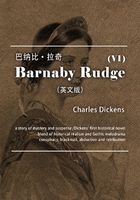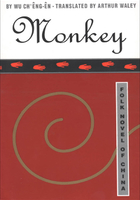EFFICIENCY THROUGH INFLECTION
How soft the music of those village bells,
Falling at intervals upon the ear
In cadence sweet; now dying all away,
Now pealing loud again, and louder still, Clear and sonorous, as the gale comes on!
With easy force it opens all the cells
Where Memory slept.
—WILLIAM COWPER, The Task.
Herbert Spencer remarked that "Cadence"—by which he meant the modulation of the tones of the voice in speaking—"is the running commentary of the emotions upon the propositions of the intellect."How true this is will appear when we reflect that the little upward and downward shadings of the voice tell more truly what we mean than our words. The expressiveness of language is literally multiplied by this subtle power to shade the vocal tones, and this voice-shading we call inflectio.
The change of pitch within a word is even more important, because more delicate, than the change of pitch from phrase to phrase. Indeed, one cannot be practised without the other. The bare words are only so many bricks—inflection will make of them a pavement, a garage,or a cathedral. It is the power of inflection to change the meaning of words that gave birth to the old saying: "It is not so much what you say, as how you say it."
Mrs. Jameson, the Shakespearean commentator,has given us a penetrating example of the effect of inflection; "In her impersonation of the part of Lady Macbeth, Mrs. Siddons adopted successively three different intonations in giving the words 'We fail.' At first a quick contemptuous interrogation—'We fail?'Afterwards, with the note of admiration—'We fail,' an accent of indignant astonishment laying the principal emphasis on the word 'we'—'we fail.' Lastly, she fixed on what I am convinced is the true readin—We fail—with the simple period, modulating the voice to a deep, low, resolute tone which settles the issue at once as though she had said: 'If we fail, why then we fail,and all is over.'"
This most expressive element of our speech is the last to be mastered in attaining to naturalness in speaking a foreign language, and its correct use is the main element in a natural, flexible utterance of our native tongue. Without varied inflections speech becomes wooden and monotonous.
There are but two kinds of inflection, the rising and the falling, yet these two may be so shaded or so combined that they are capable of producing as many varieties of modulation as maybe illustrated by either one or two lines, straight or curved, thus:
Sharp rising
Long rising
Level
Long falling
Sharp falling
Sharp rising and falling
Sharp falling and rising
Hesitating
These may be varied indefinitely, and serve merely to illustrate what wide varieties of combination may be effected by these two simple inflections of the voice It is impossible to tabulate the various inflections which serve to express various shades of thought and feeling. A few suggestions are offered here, together with abundant exercises for practise, but the only real way to master inflection is to observe, experiment, and practise.
For example, take the common sentence, "Oh, he's all right." Note how a rising inflection may be made to express faint praise, or polite doubt, or uncertainty of opinion. Then note how the same words, spoken with a generally falling inflection may denote certainty, or good-natured approval, or enthusiastic praise, and so on.In general, then, we find that a bending upward of the voice will suggest doubt and uncertainty, while a decided falling inflection will suggest that you are certain of your ground.
Students dislike to be told that their speeches are"not so bad," spoken with a rising inflection. To enunciate these words with a long falling inflection would indorse the speech rather heartily.
Say good-bye to an imaginary person whom you expect to see again tomorrow; then to a dear friend you never expect to meet again. Note the difference in inflection
"I have had a delightful time," when spoken at the termination of a formal tea by a frivolous woman takes altogether different inflection than the same words spoken between lovers who have enjoyed themselves.Mimic the two characters in repeating this and observe the difference.
Note how light and short the inflections are in the following brief quotation from "Anthony the Absolute," by Samuel Mervin.
At Sea—March 28th.
This evening I told Sir Robert What's His Name he was a fool.
I was quite right in this. He is.
Every evening since the ship left Vancouver he has presided over the round table in the middle of the smoking-room. There he sips his coffee and liqueur,and holds forth on every subject known to the mind of man. Each subject is his subject. He is an elderly person, with a bad face and a drooping left eyelid.
They tell me that he is in the British Service—a judge somewhere down in Malaysia, where they drink more than is good for them.
Deliver the two following selections with great earnestness, and note how the inflections differ from the foregoing. Then reread these selections in a light,superficial manner, noting that the change of attitude is expressed through a change of inflection
When I read a sublime fact in Plutarch, or an unselfish deed in a line of poetry, or thrill beneath some heroic legend, it is no longer fairyland—I have seen it matched.
—WENDELL PHILLIPS.
Thought is deeper than all speech, Feeling deeper than all thought; Souls to souls can never teach What unto themselves was taught.
—CRANCH
It must be made perfectly clear that inflection deals mostly in subtle, delicate shading within single words,and is not by any means accomplished by a general rise or fall in the voice in speaking a sentence. Yet certain sentences may be effectively delivered with just such inflection. Try this sentence in several ways,making no modulation until you come to the last two syllables, as indicated,
And yet I told him dis- (high) | tinctly. | (low)
tinctly.
And yet I told him dis- | (high) | (low)
Now try this sentence by inflecting the important words so as to bring out various shades of meaning.The first forms, illustrated above, show change of pitch within a single word; the forms you will work out for yourself should show a number of such inflections throughout the sentence
One of the chief means of securing emphasis is to employ a long falling inflection on the emphatic words—that is, to let the voice fall to a lower pitch on an interior vowel sound in a word. Try it on the words"every," "eleemosynary," and "destroy."
Use long falling inflections on the italicized words in the following selection, noting their emphatic power. Are there any other words here that long falling inflections would help to make expressive
ADDRESS IN THE DARTMOUTH COLLEGE CASE
This, sir, is my case. It is the case not merely of that humble institution; it is the case of every college in our land. It is more; it is the case of every eleemosynary institution throughout our country—of all those great charities founded by the piety of our ancestors to alleviate human misery and scatter blessings along the pathway of life. Sir, you may destroy this little institution—it is weak, it is in your hands. I know it is one of the lesser lights in the literary horizon of our country. You may put it out. But if you do you must carry through your work; you must extinguish, one after another, all those great lights of science which,for more than a century, have thrown their radiance over our land!
It is, sir, as I have said, a small college, and yet—there are those who love it!
Sir, I know not how others may feel, but as for myself when I see my alma mater surrounded, like C?sar in the senate house, by those who are reiterating stab after stab, I would not for this right hand have her turn to me and say, And thou, too, my son!
—DANIEL WEBSTER.
Be careful not to over-inflect. Too much modulation produces an unpleasant effect of artificiality, like a mature matron trying to be kittenish. It is a short step between true expression and unintentional burlesque.Scrutinize your own tones. Take a single expression like"Oh, no!" or "Oh, I see," or "Indeed," and by patient self-examination see how many shades of meaning may be expressed by inflection. This sort of common-sense practise will do you more good than a book of rules.
But don't forget to listen to your own voice.
QUESTIONS AND EXERCISES
1. In your own words define (a) cadence, (b) modulation, (c) inflection, d) emphasis.
2. Name five ways of destroying monotony and gaining effectiveness in speech.
3. What states of mind does falling inflection signify? Make as full a list as you can.
4. Do the same for the rising inflection
5. How does the voice bend in expressing (a) surprise? (b) shame? (c) hate? (d) formality? (e)
excitement?
6. Reread some sentence several times and by using different inflections change the meaning with each reading.
7. Note the inflections employed in some speech or conversation. Were they the best that could be used to bring out the meaning? Criticise and illustrate.
8. Render the following passages:
Has the gentleman done? Has he completely done?
And God said, Let there be light: and there was light.
9. Invent an indirect question and show how it would naturally be inflected
10. Does a direct question always require a rising inflection? Illustrate
11. Illustrate how the complete ending of an expression or of a speech is indicated by inflection
12. Do the same for incompleteness of idea.
13. Illustrate (a) trembling, (b) hesitation, and (c) doubt by means of inflection
14. Show how contrast may be expressed.
15. Try the effects of both rising and falling inflections on the italicized words in the following sentences. State your preference.
Gentlemen, I am persuaded, nay, I am resolved to speak.
It is sown a natural body; it is raised a spiritual body.
SELECTIONS FOR PRACTISE
In the following selections secure emphasis by means of long falling inflections rather than loudness Repeat these selections, attempting to put into practise all the technical principles that we have thus far had; emphasizing important words, subordinating unimportant words, variety of pitch, changing tempo,pause, and inflection. If these principles are applied you will have no trouble with monotony.
Constant practise will give great facility in the use of inflection and will render the voice itself flexibl
CHARLES I
We charge him with having broken his coronation oath; and we are told that he kept his marriage vow!We accuse him of having given up his people to the merciless inflictions of the most hot-headed and hard hearted of prelates; and the defence is, that he took his little son on his knee and kissed him! We censure him for having violated the articles of the Petition of Right,after having, for good and valuable consideration,promised to observe them; and we are informed that he was accustomed to hear prayers at six o'clock in the morning! It is to such considerations as these, together with his Vandyke dress, his handsome face, and his peaked beard, that he owes, we verily believe, most of his popularity with the present generation.
—T.B. MACAULAY.
ABRAHAM LINCOLN
We needed not that he should put on paper that he believed in slavery, who, with treason, with murder,with cruelty infernal, hovered around that majestic man to destroy his life. He was himself but the long sting with which slavery struck at liberty; and he carried the poison that belonged to slavery. As long as this nation lasts, it will never be forgotten that we have one martyred President—never! Never, while time lasts, while heaven lasts, while hell rocks and groans, will it be forgotten that slavery, by its minions,slew him, and in slaying him made manifest its whole nature and tendency.
But another thing for us to remember is that this blow was aimed at the life of the government and of the nation. Lincoln was slain; America was meant.The man was cast down; the government was smitten at. It was the President who was killed. It was national life, breathing freedom and meaning beneficence,that was sought. He, the man of Illinois, the private man, divested of robes and the insignia of authority,representing nothing but his personal self, might have been hated; but that would not have called forth the murderer's blow. It was because he stood in the place of government, representing government and a government that represented right and liberty, that he was singled out.
This, then, is a crime against universal government.It is not a blow at the foundations of our government,more than at the foundations of the English government, of the French government, of every compact and well-organized government. It was a crime against mankind. The whole world will repudiate and stigmatize it as a deed without a shade of redeeming light....
The blow, however, has signally failed. The cause is not stricken; it is strengthened. This nation has dissolved,—but in tears only. It stands, four-square,more solid, to-day, than any pyramid in Egypt. This people are neither wasted, nor daunted, nor disordered.Men hate slavery and love liberty with stronger hate and love to-day than ever before. The Government is not weakened, it is made stronger....
And now the martyr is moving in triumphal march,mightier than when alive. The nation rises up at every stage of his coming. Cities and states are his pallbearers, and the cannon beats the hours with solemn progression. Dead—dead—dead—he yet speaketh! Is Washington dead? Is Hampden dead? Is David dead?Is any man dead that ever was fit to live? Disenthralled of flesh, and risen to the unobstructed sphere where passion never comes, he begins his illimitable work.His life now is grafted upon the Infinite, and will be fruitful as no earthly life can be. Pass on, thou that hast overcome! Your sorrows O people, are his peace! Your bells, and bands, and muffled drums sound triumph in his ear. Wail and weep here; God makes it echo joy and triumph there. Pass on, victor!
Four years ago, O Illinois, we took from your midst an untried man, and from among the people; we return him to you a mighty conqueror. Not thine any more,but the nation's; not ours, but the world's. Give him place, ye prairies! In the midst of this great Continent his dust shall rest, a sacred treasure to myriads who shall make pilgrimage to that shrine to kindle anew their zeal and patriotism. Ye winds, that move over the mighty places of the West, chant his requiem! Ye people, behold a martyr, whose blood, as so many inarticulate words, pleads for fidelity, for law, for liberty!
—HENRY WARD BEECHER.
THE HISTORY OF LIBERTY
The event which we commemorate is all-important,not merely in our own annals, but in those of the world. The sententious English poet has declared that "the proper study of mankind is man," and of all inquiries of a temporal nature, the history of our fellow-beings is unquestionably among the most interesting. But not all the chapters of human history are alike important. The annals of our race have been filled up with incidents which concern not, or at least ought not to concern, the great company of mankind.History, as it has often been written, is the genealogy of princes, the field-book of conquerors; and the fortunes of our fellow-men have been treated only so far as they have been affected by the influence of the great masters and destroyers of our race. Such history is, I will not say a worthless study, for it is necessary for us to know the dark side as well as the bright side of our condition. But it is a melancholy study which fills the bosom of the philanthropist and the friend of liberty with sorrow.
But the history of liberty—the history of men struggling to be free—the history of men who have acquired and are exercising their freedom—the history of those great movements in the world, by which liberty has been established and perpetuated, forms a subject which we cannot contemplate too closely. This is the real history of man, of the human family, of rational immortal beings....
The trial of adversity was theirs; the trial of prosperity is ours. Let us meet it as men who know their duty and prize their blessings. Our position is the most enviable, the most responsible, which men can fill. If this generation does its duty, the cause of constitutional freedom is safe. If we fail—if we fail—not only do we defraud our children of the inheritance which we received from our fathers, but we blast the hopes of the friends of liberty throughout our continent, throughout Europe, throughout the world,to the end of time.
History is not without her examples of hardfought fields, where the banner of liberty has floate triumphantly on the wildest storm of battle. She is without her examples of a people by whom the dearbought treasure has been wisely employed and safely handed down. The eyes of the world are turned for that example to us....
Let us, then, as we assemble on the birthday of the nation, as we gather upon the green turf, once wet with precious blood—let us devote ourselves to the sacred cause of constitutional liberty! Let us abjure the interests and passions which divide the great family of American freemen! Let the rage of party spirit sleep to-day! Let us resolve that our children shall have cause to bless the memory of their fathers, as we have cause to bless the memory of ours!
—EDWARD EVERETT.














